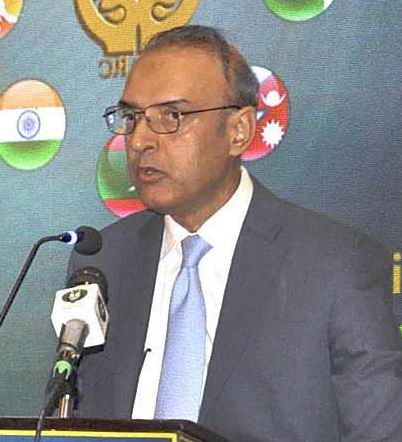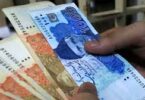F.P. Report
ISLAMABAD: State Bank of Pakistan (SBP) Governor Jameel Ahmad on Wednesday underlined the urgent need for creating required resilience against negative impacts of climate change to protect humans, agriculture and livestock, besides uplifting the regional economies to alleviate vulnerabilities faced by them.
Addressing the SAARCFINANCE Symposium here, he said Pakistan was ranked among the top 10 most affected countries in terms of climate change-related disasters despite the fact that its share in greenhouse gas emissions was less than 1 percent.
The SAARCFINANCE Symposium titled “Climate Change and Green Financing: Initiatives & Outlook in South Asia”, was organized by the SBP and attended by heads of the central banks of the region, representatives of Asian Development Bank (ADB) and International Finance Corporation (IFC).
The governor said climate change and environmental protection were global issues, which were posing serious threats to economies of the world, adding rising temperature caused by rapid industrialization was negatively impacting the agriculture output.
He said the South Asian region was the most vulnerable in terms of climate change, adding more than half of the region was affected due to changing weather patterns. “A holistic approach is needed of the time to overcome such negative impacts.”
Jameel Ahmad noted that the SAARC region was also confronting other multiple challenges and facing difficult times in terms of very high inflation, slow growth, pressure on fiscal and external balances, climate changes, and increased poverty.
Climate change has also increased the frequent flooding due to heavy rains in Pakistan, he said adding in 2022 over 23 million people were affected by torrential rains and flash floods, which also destroyed agriculture land, infrastructure and communication network.
He said accumulative losses of such catastrophes were estimated at $1.3-1.9 billion per year; equivalent to 2.5-2.7 percent of GDP. He said the SBP had initiated several programmes to encourage investment in the green economy. “Globally, the financial systems are shifting towards promoting sustainability considerations,” he said adding that similarly, SBP had adopted a proactive approach to safeguard the financial sector against climate change and environmental risks by undertaking several green initiatives including green banking guidelines, environmental and social risk management (ESRM) implementation manual and financing scheme for renewable energy.
He said steps were also taken to reduce the carbon footprint in the local banking system by installing solar-operated Automated Teller Machines (ATMs) to encourage the use of renewable energy in the country, adding that local banks were also encouraged to enhance their share of investment in green economy.
Under such circumstances, he said the SAARCFINANCE forum provided an opportunity to learn from each others’ experiences on relevant macroeconomic policies and there was a need to fortify regional cooperation in the face of a challenging environment.
Alongside the Governors’ meeting, a session was arranged on SAARCFINANCE collaborative research studies completed during the year.
During the session, the SBP authorities presented a study on the use of unconventional policy instruments by South Asian central banks, and another study was presented by Nepal Rastra Bank on the prospects of Central Bank Digital Currency (CBDC) in the SAARC region.
Speaking on the occasion, Sima Kamil, Deputy Governor SBP said that the event was a significant step towards fostering greater collaboration and cooperation among SAARC member countries and international organizations to address the pressing issue of climate change.







